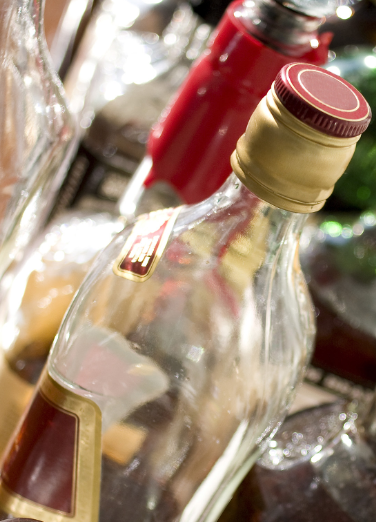
Survey
A recent survey of underclass Penn State students indicated that more than 75% reported consuming alcohol.
NATIONAL SURVEYS SHOW:
9 out of 10 experiment with alcohol
7 out of 10 drink regularly, and
3 out of 10 will be problem drinkers
By the time males are 18 years old, 1 in 4 of them are considered to be heavy episodic-type heavy drinkers (they drink once a week or more and have five drinks at one time).
The Problem of Alcohol Consumption and High - Risk Drinking in College-Age Students
Alcohol is the most misused and misunderstood drug in our society. Although college-age students are under the legal age for drinking alcohol, it is important to remember that alcohol is the most widely used drug by this age group. (See box at left.)
One of the results of the misuse of alcohol in this age group is heavy episodic drinking. Sure, we have all heard about “frat parties” and crazy spring break trips and assume that these are just another part of the college experience. Although part of the college experience, heavy episodic drinking has been consistently associated with higher incidences of unplanned sexual activity,sexual and physical assaults, injuries, trouble with campus and local police, and alcohol-related driving injuries and fatalities. For example, consider this account from a college freshman:
"My friend had a drinking contest with her boyfriend. They each had five shots of Wild Turkey, two beers, and then started a ‘power hour’ or ‘century’ - one shot of beer per minute for 60 minutes. My friend began falling down and looked ill. She laid down to go to sleep and began throwing up for two hours straight. She rolled over and almost choked on her vomit.”
This account from a college student is more common than you may believe. Episodes such as this can be avoided through parents helping their students as they attend college. Time and time again we have heard some parents say, “There is just no use – they will do what they want anyway and don’t care what we say.” This grossly underestimates the influence that parents can have – YOU CAN MAKE A DIFFERENCE!
Families are quite different from one another and we have written this handbook to reach a wide audience. Consequently, there may be some sections of the handbook that you can relate to better than others. This is okay. Not all families are the same and we tried to respect those differences.
By reading this handbook and talking with your student, you have the opportunity to reduce the likelihood they will experience the negative consequences associated with heavy episodic drinking.